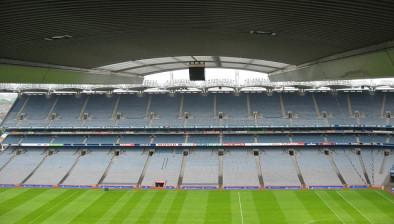High Court: No appeal in Clontarf strategic housing development case

The High Court has refused to certify questions for appeal following its quashing of An Bord Pleanála’s decision to grant planning permission for the development of 131 apartments in Clontarf.

About this case:
- Citation:[2025] IEHC 178
- Judgment:
- Court:High Court
- Judge:Mr Justice David Holland
Delivering judgment for the High Court, Mr Justice David Holland considered inter alia that there was no uncertainty in the law in respect of An Bord Pleanála’s duty to seek further information or the standards of review of determinations as to material contraventions of development plans and highlighted that the form of development at issue was unique and that there was no evidence that it was likely to be a regular feature of planning applications.
Background
The High Court quashed the decision of An Bord Pleanála’s dated 23 December 2021 to grant Savona Ltd planning permission for a strategic housing development (SHD) of 131 apartments in Clontarf.
The decision was quashed on the basis that the proposed development materially contravened the development plan as to the quantum of its provision of open space and on the basis that the Board erred in failing to consider whether it should have sought written confirmation from Dublin Bus as to the adequacy of public transport to serve the proposed development at peak hours.
The Board sought leave to appeal to the Court of Appeal pursuant to s.50A(7) of the Planning and Development Act 2000 (as amended), positing ten questions for certification which it asserted to be of exceptional public importance.
Questions for Certification
Questions 6 to 10 broadly concerned the nature and extent of the Board’s duties to request further information, in the context of its failure to consider requesting confirmation from Dublin Bus as to the adequacy of public transport for the proposed development.
Questions 1 to 5 concerned the High Court’s decision relating to the provision for open communal space in the proposed development.
The High Court
At the outset of his judgment, Mr Justice Holland set out the legal principles relevant to the Board’s application.
The court turned to question 6, concerning whether there is a general obligation on the Board to consider, irrespective of whether any party requests it to do so, whether to request further information in every case where a factual conflict arises between the material presented by the applicant for permission and another party which has made observations.
Mr Justice Holland pointed out that the question was based on an “incorrect depiction” of the High Court’s judgment as same did not decide that there is a general obligation on the Board to consider whether to request further information in every case where a factual conflict arises — rather, it decided that an obligation to consider whether to request information may arise in particular circumstances and so this question of law did not arise from the High Court’s judgment or constitute a matter of exceptional public importance.
The judge also highlighted that there is no uncertainty in the law but that the Board’s duty imposes autonomous obligations with a view to protection of the public good as a matter distinct from the interests of the antagonists in the planning process.
The court considered that questions 7 and 8 were sub-questions of question 6 and for the same reasons as pertaining to question 6, were not certifiable for appeal.
Questions 9 and 10 concerned whether, notwithstanding that the Board’s inspector expressly stated that she was satisfied on the basis of the documentation before her as to a certain matter, the court could infer that the Board did not consider whether it should seek further information or whether the inference should be drawn that the Board did not consider that further information was required.
The court noted that the judgment did not hold that the Board was required in any general sense to explicitly state that it had considered whether to seek further information but decided not to, rather the judgment considered whether the court should infer that the inspector did consider whether the Board should seek further information and made “an inference of fact from the totality of the evidence that the Board had not done so in this particular case”.
Accordingly, Mr Justice Holland found that those questions did not arise from the judgment and raise questions of law or issues of exceptional public importance.
As to questions 1 and 2, concerning whether the High Court was correct in its definition of “open space” and whether the text of the development plan or the court’s interpretation of “communal open space” was relevant to the Board’s decision, the court found that question 1 was framed as an open question and did not assert an error of law and that the premise of question 2 was wrong in asserting that the judgment confined itself to considering whether the space is ‘open’ in the Court’s interpretation of the ordinary and natural meaning of that word to the exclusion of consideration of the narrative text of the development plan outlining the definition and/or characteristics of communal open space.
Determining that those questions did not arise on the High Court’s judgment, Mr Justice Holland then considered question 3 which asked what the standard of review was in respect of a conclusion of the Board that an aspect of a proposed development constitutes communal open space within the meaning of a development plan.
The court found that question 3 was also framed as an open question contrary to Clifford v An Bord Pleanála [2021] IEHC 642 and did not assert an error and did not raise an issue as to which there was uncertainty in the law having regard to the Supreme Court’s observations concerning the application of the ‘Jennings/Sherwin tests’ in Graymount House Action Group v An Bord Pleanála & Trafalgar Capital [2025] IESCDET 22.
As to question 4, which related to whether the fact that no party complained to the Board of a material contravention was relevant, the High Court again considered that the question was framed in the abstract contrary to Clifford, that it was not framed on a proper understanding of the High Court’s judgment and that it raised no issue of law as to which there was any uncertainty.
In this regard, Mr Justice Holland stated: “Put simply, the answer to this question is ‘Yes’. Not merely is the law certain: it doesn’t get the Board anywhere in its present application.”
The final question concerned whether the High Court was correct in concluding that a contravention of the development plan could not be considered to be immaterial on the basis that the roofed courtyard space provided, even if not “open”, met the objectives to be served by the provision of communal open space.
The judge highlighted that question 5 appeared to be premised on a view that “the openness of an open space is capable of being an inessential virtue such that its absence may be immaterial to the requirement of a communal open space”, finding same to be an “unstateable proposition”.
Mr Justice Holland emphasised inter alia that it was “because the Board’s oral argument that the other planning merits of the courtyard could render the contravention immaterial was entirely unconvincing, as it would eviscerate the primary objective of the criterion that the space be open, that I concluded that the issue of material contravention ‘nets to a question whether the space is open’” and added: “Clearly, as to a development plan requirement of open space, ‘openness’ to the elements is not merely an optional quality or a quality merely enabling of other virtues.”
Conclusion
Accordingly, the High Court refused to certify an appeal.
Stapleton v An Bord Pleanála & Ors [2025] IEHC 178











